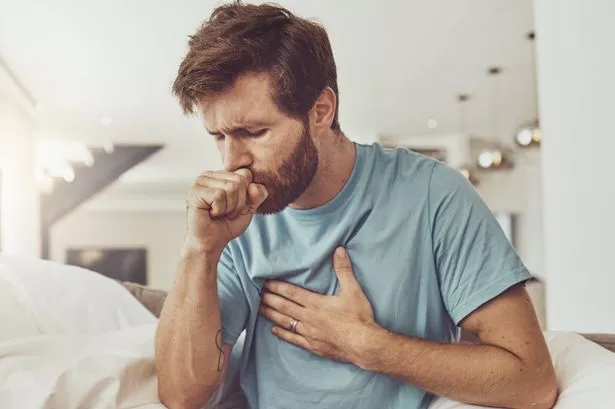Most, but not all, symptoms of flu and Covid-19 are the same.Fiona Callingham and Sam Volpe Health Reporter
07:56, 17 Oct 2025
 Cases of Covid and the common flu have risen in the UK in recent weeks leaving many people feeling unwell(Image: Getty)
Cases of Covid and the common flu have risen in the UK in recent weeks leaving many people feeling unwell(Image: Getty)
With cases of Covid-19 and flu both rising as the nights draw in, it can be difficult to know what sort of illness you have when you start sniffling. But there is one symptom that’s more likely to be associated with Covid than the ‘flu according to NHS guidance, The Mirror reports.
The latest data from the UK Health Security Agency (UKHSA) shows that we are facing an “early flu season”, while after a steady uptick through the autumn so far, Covid-19 cases stabilised this week. However, of course it can be difficult to distinguish between Covid and flu without taking a test as any of the symptoms overlap.
On the NHS website, it states that Covid symptoms are “very similar to symptoms of other illnesses, such as colds and flu”. Both illnesses can cause a high temperature, an aching body, headaches, and feeling sick among other symptoms, for example.
But “shortness of breath” is listed by the NHS as a sign of Covid and not flu. This is more commonly found in the case of illnesses such as Covid or respiratory syncytial virus (RSV).
However, if a person doesn’t recover from flu and it develops into something more serious they may start to experience breathing difficulties. This can occur if the patient has pneumonia, for example.
The US Centres for Disease Control and Prevention (CDC) says that adults who experience “difficulty breathing or shortness of breath” should obtain medical care “right away”. This was listed among a number of “emergency warning signs of flu complications”.Here is a full run-down of symptoms to watch for in each illness.
Covid symptoms
According to the NHS, Covid-19 symptoms can include:
A high temperature or shivering (chills) – a high temperature means you feel hot to touch on your chest or back (you do not need to measure your temperature)A new, continuous cough – this means coughing a lot for more than an hour, or three or more coughing episodes in 24 hoursA loss or change to your sense of smell or tasteShortness of breathFeeling tired or exhaustedAn aching bodyA headacheA sore throatA blocked or runny noseLoss of appetiteDiarrhoeaFeeling sick or being sick
It says: “Most people feel better within a few weeks, but it can take longer to recover. For some people, it can be a more serious illness and their symptoms can last longer.”
Flu symptoms
On the NHS website it says that flu symptoms come on “very quickly” and can include:
A sudden high temperatureAn aching bodyFeeling tired or exhaustedA dry coughA sore throatA headacheDifficulty sleepingLoss of appetiteDiarrhoea or tummy painFeeling sick and being sick
“The symptoms are similar for children, but they can also get pain in their ear and appear less active,” it says. It adds: “Flu will often get better on its own, but it can make some people seriously ill.
“It’s important to get the flu vaccine if you’re advised to.”
Vaccines
Regarding vaccines, Dr Jamie Lopez Bernal, Consultant Epidemiologist at UKHSA, said: “It’s really encouraging to see people already taking up the flu vaccine offer, especially as we’re starting to see cases increasing in our surveillance data. Over the past few weeks, we have seen flu and COVID-19 cases starting to increase.
“The latest data also shows a rise in people being hospitalised with COVID-19, so it’s more important than ever that vulnerable groups are protected. As we head into the winter months when we are likely to see cases continue to rise, it’s vital that eligible individuals take up the offer now to ensure they are protected.
“We know that vaccination is the best defence against respiratory illnesses such as flu and COVID-19 and this is a simple step you can take to help look after yourself and your family this winter”.
You can book an appointment via the NHS App, your local GP practice, online at nhs.uk/bookflu or nhs.uk/bookcovid, or by calling 119. You can also find your nearest drop-in service or use the NHS walk-in finder.
Our ChronicleLive Daily newsletter is free. You can sign up to receive it here. It will keep you up to date with all the latest breaking news and top stories from the North East.
ChronicleLive has created a dedicated WhatsApp community for breaking news and our biggest stories. You can join this WhatsApp community here. It will keep you up-to-date with news as it breaks and our top stories of the day sent directly to your phone.

